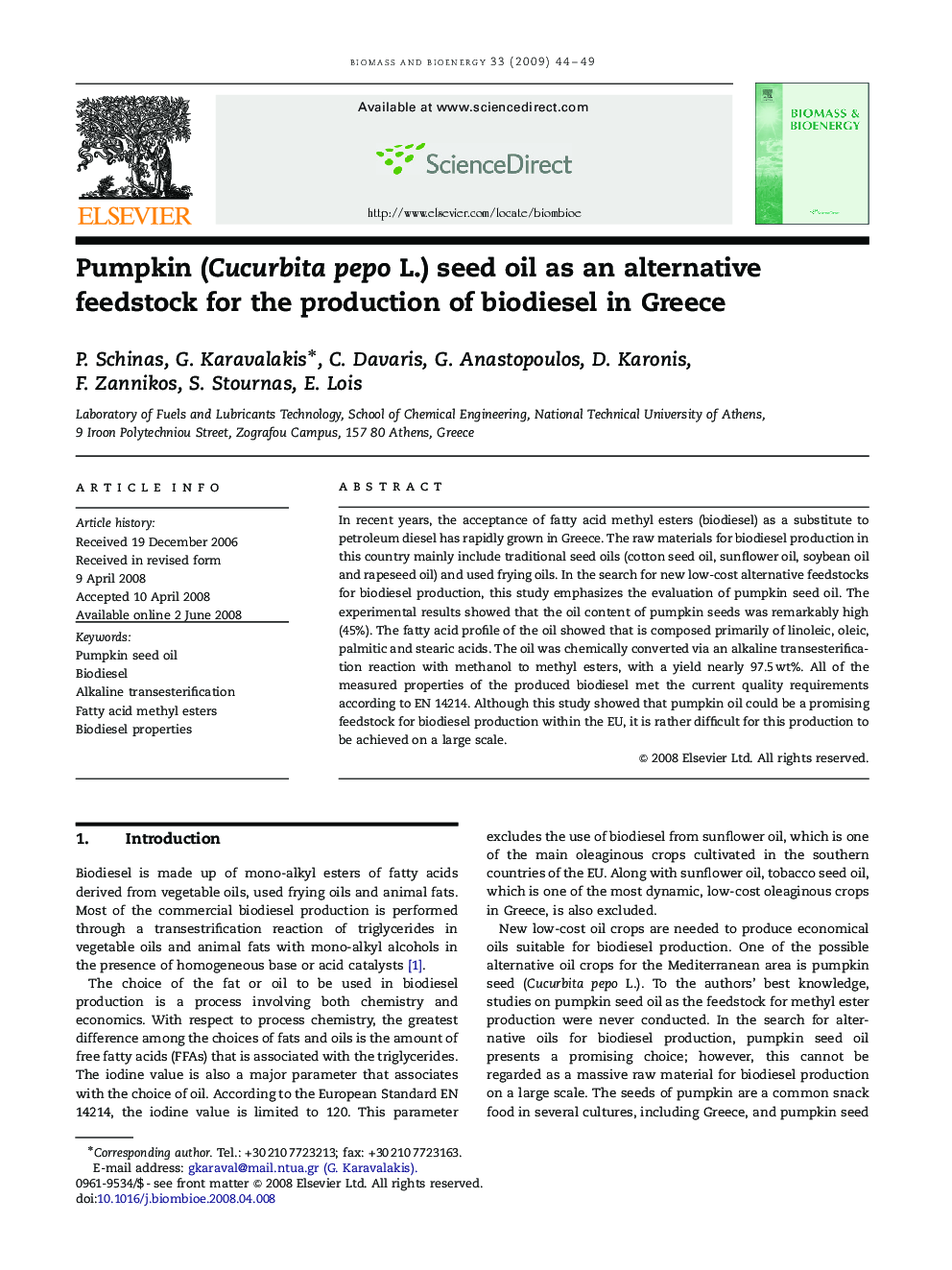| Article ID | Journal | Published Year | Pages | File Type |
|---|---|---|---|---|
| 678368 | Biomass and Bioenergy | 2009 | 6 Pages |
In recent years, the acceptance of fatty acid methyl esters (biodiesel) as a substitute to petroleum diesel has rapidly grown in Greece. The raw materials for biodiesel production in this country mainly include traditional seed oils (cotton seed oil, sunflower oil, soybean oil and rapeseed oil) and used frying oils. In the search for new low-cost alternative feedstocks for biodiesel production, this study emphasizes the evaluation of pumpkin seed oil. The experimental results showed that the oil content of pumpkin seeds was remarkably high (45%). The fatty acid profile of the oil showed that is composed primarily of linoleic, oleic, palmitic and stearic acids. The oil was chemically converted via an alkaline transesterification reaction with methanol to methyl esters, with a yield nearly 97.5 wt%. All of the measured properties of the produced biodiesel met the current quality requirements according to EN 14214. Although this study showed that pumpkin oil could be a promising feedstock for biodiesel production within the EU, it is rather difficult for this production to be achieved on a large scale.
